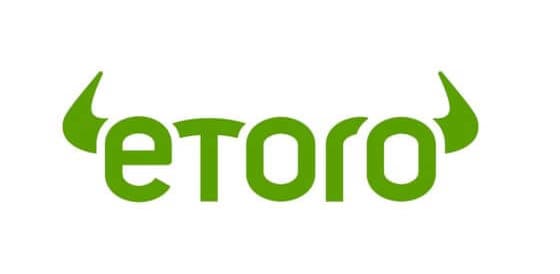Fuel Crisis: How to Get the Cheapest Petrol Prices in the UK
Please note that we are not authorised to provide any investment advice. The content on this page is for information purposes only.
Where can you get the cheapest petrol prices right now? Government data released today shows prices at the pump rose 0.91p/litre to 136.1p as of yesterday. That’s the highest price in eight years. But that’s far from the whole story as we explain below.
We explain what’s happening with the latest on the fuel crisis and how you can source lower-priced fuel for your car and protect your personal finances.
What’s behind the fuel shortages and rising costs
Get in line to fill up and pay more when you can get it – UK motorists could be forgiven for thinking the world is against them.
Not only have Britons had to queue for petrol in a crisis that is easing in most parts of the country but continues in London and the South East, but as the forecourt logjam have cleared, they have found themselves starring at unwelcome price rises at the pump.
As one exasperated politician pondered the other day, “will there be a plague of locusts next?”
So why is this all happening now and what can you do to alleviate your exposure to rising petrol prices?
First a bit of context. You might have missed it but last year something historic happened in the crude oil market – prices of oil futures fell below zero for the first time ever.
The pandemic had inflicted a double whammy of demand and supply shock on the oil market. On the one hand the lockdowns were curtailing supply while on the other hand demand was falling off a cliff as production ground to a near halt and cars came off the roads.
Pent-up demand, supply chain pressures driving up costs
If the pandemic was to blame for falling prices, you probably won’t be too surprised to hear that it is also to blame for rising prices. It’s not just fuel that’s being affected either, with commodities across the board seeing significant price appreciation.
Now factories and are coming back on line all at the same time and pent-up consumer demand – bolstered by those households that have found themselves in the enviable position of being able to increase their savings during the lockdowns and working from home periods – is driving up demand for energy.
67% of retail investor accounts lose money when trading CFDs with this provider.
Crude oil is currently trading at a seven-year high and OPEC+, the cartel of oil producers and their non-OPEC allies such as Russia, have decided to increase production (by 400,000 barrels a day) but only slowly. That led traders yesterday to bid up prices in the expectation that pressure on supply will continue.
For UK consumers matters are made worse by the strengthening dollar and the weakening pound sterling. Because oil is traded in dollars, when the value of the dollar rises, crude oil becomes more expensive for non-dollar buyers.
Also, there is some evidence that car usage is growing because people feel safer in their cars as opposed to using public transport.
Weak pound, strong dollar piles on the pain
Add to that the weakness of the pound recently and currencies exchange rate impact is even more negative.
Although higher inflation is pushing the Bank of England towards raising interest rates sooner than previously anticipated, this wasn’t treated as a buying signal for the currency, as it would normally. This is what has led some commentators to talk about the pound trading like an emerging market currency. There were signs today of that changing very slightly, with the GBP/USD trading pair up 14 pips.
WTI Future 78.04 +0.420 +0.54. Brent crude benchmark is trading at 81.87 , up 0.75% today while West Texas Intermediate crude benchmark – what is known as a light, sweet grade crude and is used for refining into petrol (or gas if you are reading in North America). Brent is s similar blend but heavier and tends to be better suited for products such as aviation fuel.
Shortage of fuel tanker drivers – worldwide issue but UK hit worse than most
Finally supply bottlenecks are adding to the cost of getting the fuel to where it is needed. In the UK context that has been felt most acutely in the shortage of fuel tanker drivers.
There is a worldwide shortage of truck drivers but that fact that the Uk government is waiving some visa rules for migrant labour from Europe suggests that Brexit has aggravated labour shortages.
Unfortunately only 127 European drivers have taken the UK government up on its offer government – although the Times claims it is as little as 27. Either way, the number is statistically insignificant when compared to the size of the problem – a problem that affects many industries, not just fuel supply.
Prime minister Boris Johnson said on Sunday that fuel supply situation was improving were, highlighting the fact that “What you have got at the moment is a shortage of lorry drivers, of truck drivers that is affecting the whole world”.
So that’s the background. What is the level of price hikes that are flowing through to the pumps from the crude oil markets?
67% of retail investor accounts lose money when trading CFDs with this provider.
So what are the prices at the pump right now?
The RAC [Royal Automobile Club] last week said it thought prices could touch 143p a litre.
Consumer group FairFuelUK that prices since Thursday last week showed a jump of 4-5p, with 150p a litre expected by the end of the month.
The Automobile Association said that prices on 31 August averaged around 135.4p a litre.
While there were some signs of improvement over the weekend, queues remained common in London and the Southeast, with some stations still out of petrol. Shell’s U.K. twitter feed was filled with comments from motorists desperate to find petrol or complaining about price increases.
According to the Petrol Retailers Association (PRA) a fifth of petrol stations in London and the South East were still out of fuel, and that’s despite the army being brought in to deliver to forecourts, with 50% of that manpower diverted to London and the South East.
If you want to take a look at the government data we mentioned at the top of the story, you can download the weekly oil and petrol prices stats here.
Here’s how to get the cheapest petrol prices
But the good news is that there are ways to avoid paying the highest prices if you shop around.
In London, where you may still be struggling to get fuel, that may not be an option just yet, but elsewhere it will be.
- PetrolPrices
- Confused.com
- Wizzle
- AA
- Arval
- Tesco
- Asda
- FuelGenie
PetrolPrices – You could start by downloading the PetrolPrices. The price comparison app claims it can save motorists as much as £495 a year on unleaded petrol purchases and £289 on premium diesel.
Confused.com – Alternatively, you could try Confused.com. Head over to their petrol prices page, select fuel type, put in your postcode and get a range of prices at garages near you. To see the full details you will need to set up a user account (free).
Wizzle – Car-buying site CarWow also has a petrol prices comparison site called Wizzle, which is worth a look so you have more results to play with. You will need to provide an email address in order to use the site.
AA – If you are a member of the AA then make sure you have downloaded the AA app because it include a petrol prices look-up feature that is free to use for members.
Arval – Arval, from french banking group BNP Paribas had a handy site that
Tesco & Asda – Supermarkets frequently have promos on fuel. Tesco and Asda are worth keeping an eye on.
FuelGenie – FuelGenie.co.uk is a one-stop shop for reviews of things like business fuel cards as well as the latest on prices at the pump.
67% of retail investor accounts lose money when trading CFDs with this provider.






